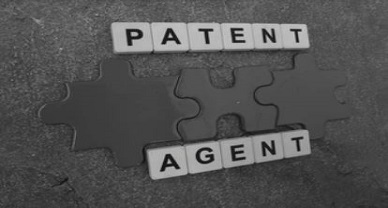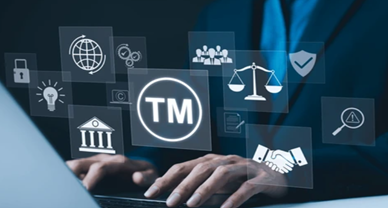Privileged Communication for Patent and Trademark Agents: Analysing the Law of Evidence and its Implications on IP Regime
INTRODUCTION
Privileged communication refers to the confidential exchange of words between clients and their attorneys. Various nations around the globe confer protection to the exchange of information, and courts can neither compel the advocate for its revelation nor take such revelation as evidence. A lawyer is like a medical practitioner, and the intention behind such privilege is to enable the client to adequately disclose facts to allow attorneys to represent their interests without fear of divulgence.[1] The Indian Law recognises this attorney-client privilege from Sections 132 to 134 of the Bharatiya Sakshya Adhiniyam, 2023.[2] However, such privilege has not been granted to patent or trademark agents in the Indian regime, which can otherwise play a vital role in the emerging domain of the Intellectual Property regime.
INDIAN FRAMEWORK
Section 24(c) of the Advocates Act, 1961, states that a degree in law is a prerequisite to enrol as an advocate.[3] On the other hand, Section 126(1)(c) of the Patents Act, 1970 envisages that the educational qualification for a patent agent is a degree in science or technology.[4] This highlights that a patent agent does not need to be an advocate, and both are independent professions. Similarly, Rule 144(iii) of the Trade Marks Rules, 2017, makes any degree-holder eligible to be a trademark agent.[1] In Wilden Pump Engineering Co. v. Fusfeld, the court held that a patent agent is not an advocate and remains excluded from the privilege.[2] In the Dormeuil Trademark case, a trademark agent was differentiated from an advocate.[3] Hence, Section 132 of the Adhiniyam only mentions “advocate” and, thus, fails to protect agents.[4]
The sui generis legislations highlight the duties of an agent. Section 130(1)(ii) of the Patents Act, 1970[5] and Rule 151(2)(b) of the Trade Marks Rules, 2017,[6] the names of agents can be removed for “misconduct”. Such misconduct was compared to that of an advocate in the European Commission v. Union of India.[7] However, none of the provisions confer the privilege of communication with their client. Therefore, even if agents make any statement in the court that may lead to professional misconduct for breaching confidence or contractual terms with the client, it will have an evidentiary value.
INTERNATIONAL FRAMEWORK
- United Kingdom: It originally excluded patent or trademark agents since they were not considered legal professionals. However, Sections 280[8] and 284[9] of the Copyright, Designs and Patents Act, 1988 compare agents to solicitors and grant them an equal privilege in terms of documentation, communication and information.
- United States of America: Title 37 of the United States Code of Federal Regulations provides for a set of rules regarding patents, trademarks and copyrights. Section 42.57 of the Title protects patent agents and their employees, both domestic and foreign.[10]
- Canada: It initially rejected the protection of foreign IP agents. However, after the 2018 amendment[11], Section 16.1(4) of the Patent Act, 1985 gives a degree of privilege to foreign agents, provided they are domestically recognised by their Nation[12].
- Australia: The agents were initially granted privilege under Section 102 of the Patents Act, 1903,[13] along with Regulation 135 of the Patent Regulations 1904[14]. Originally, this protection was confined only to domestic agents. The IP Committee of the Law Council of Australia in 2005 called for protection for foreign agents,[15] which was realised via the IP Laws Amendment Act, 2012[16]. Eventually, New Zealand also adopted a similar stance.[17]

RECOMMENDATIONS
- 69th Law Commission Report: It suggests the conferment of privilege to patent and trademark agents. It was a comprehensive report that dealt with each of its provisions and recommended myriad amendments along the lines of English law in the wake of scientific development. The report recommended an amendment to the old evidence to carve out another exception to the general principle of compelling a witness to answer questions. This would ensure that patent agents cannot be compelled to answer questions that imperil their client’s interests, barring a few exceptional circumstances.[18]
- 185th Law Commission Report: It delved deeper into analysing the existing lacunae in the Indian Evidence Act, 1872, with additional recommendations such as vesting immunity to trademark agents. This report redrafts separate Sections for “patent agents” and “trademark agents”. These proposed provisions widely cover agents, including registered individuals, partnership firms, and corporate bodies.[19] However, it has been over two decades, and there have been no attempts to implement these suggestions.
- World Intellectual Property Organization: WIPO recommended that nations adopt IP agent-client privilege, extending it to cross-border protection. WIPO organised its 24th Session on the “Standing Committee on the Law of Patents” in Geneva in 2016, and representatives from various States discussed their stance. States such as the US, Canada, and the UK believe that such privilege is necessary for IP agents, domestic or foreign, owing to worldwide technological advancements. However, India gave a contrasting opinion, mentioning that it would be detrimental to the IP system, which needs disclosures to determine registration.[20]
NEED FOR PRIVILEGE
- Agents practice before the Controller-General and High Courts, prepare relevant documents, and deal with confidential aspects concerning their clients’ innovations and trade secrets, including business and legal issues. This makes their role comparable to an advocate’s and calls for equal privilege.
- Even though agents are duty-bound by confidentiality, in the current regime, they can be compelled to provide evidence in the form of answers or documentation, which will hold evidentiary value. Therefore, clients fear openly discussing their ideas with them, inhibiting the growth of innovation and scientific development in the country.
- Various nations such as the UK, the USA, Canada, and Australia also protect privileged communication with foreign agents or clients since IP is a matter of global concern, and there are various international filings for their cross-border recognition. Such cross-border protection is necessary to seek foreign investments and international filings and thereby progress as a global IP hub.
CONCLUSION
India’s research and development is growing exponentially, yet the law has been unable to keep up with such a pace. Agents play a fundamental role in helping clients get their intellectual creations registered and protected from infringement. India sheds concerns on issues of non-disclosure leading to false registration. However, Section 25(2) of the Patents Act, 1907 provides for post-grant opposition against patents[21] and Section 21 of the Trade Marks Act, 1999, for opposition against trademarks after their advertisement[22], thereby keeping a check on wrongful grants. This article suggests extending privileges to agents, as indicated in the 185th Law Commission Report, by inserting Sections to the Bharatiya Sakshya Adhiniyam. However, the Law Commission did not inculcate the aspect of cross-border privilege. Therefore, the provisions may incorporate additional clauses to extend privileges to citizens and agents of reciprocating territories. Equalising the rights and privileges of advocates and IP agents is the need of the hour to ensure that the IP ecosystem in India stays healthy.
Author: Shub Kartik Goenka, in case of any queries please contact/write back to us at support@ipandlegalfilings.com or IP & Legal Filing
REFERENCES
- Aditya Gupta, Statutory inconsistency and jurisdictional conflict between the Controller of Patents and the Competition Commission of India, 16 J. Intell Prop. L. & Prac., 1203, 1205-1206 (2021). https://doi.org/10.1093/jiplp/jpab126.
- David E. Schwartz, Domestic and International Issues Related to Privileged Communications between Patent Practitioners and Their Clients [Docket No. PTO–C–2014–0066], IPIC 1, 5-6 (2015), https://www.uspto.gov/sites/default/files/documents/TradeGroup_CAN_IPIC_IPInstofCanada.pdf.
- V. Krishnamachari, Law of Evidence (9th ed. 2023).
- Elizabeth Hall, Patent Attorney Privilege in Australia: Rationale, Current Concerns and Avenues for Reform, Melbourne Law School 1, 19-20 (2007), https://www.researchgate.net/publication/228192255_Patent_Attorney_Privilege_in_Australia_Rationale_Current_Concerns_and_Avenues_for_Reform.
- Essenese Obhan, No privilege for patent agents and clients, law.Asia (Dec. 12, 2023), https://law.asia/no-privilege-for-patent-agents/.
- Khushboo Garg, Client – Attorney Privilege: A Study of Indian Legal System, Legal Readings (Jun. 19, 2021), https://legalreadings.com/client-attorney-privilege-a-study-of-indian-legal-system/.
- Law Commission of India, Report No. 185: Review of the Indian Evidence Act, 1872 (2003).
- Law Commission of India, Report No. 69: The Indian Evidence Act, 1872 (1977).
- Sanjay Pandey, Critical Analysis of Section 126 of Indian Evidence Act, 1872, 3 JCLJ 1033, 1034-1035 (2022), https://www.juscorpus.com/wp-content/uploads/2022/12/201.-Sanjay-Pandey.pdf.
- Secretariat, Standing Committee on the Law of Patents, World Intellectual Property Organization ( 13, 2016), https://www.wipo.int/export/sites/www/scp/en/meetings/session_24/report/scp_24_6_prov.pdf.
[1] Trade Marks Rules, 2017, Rule 144(iii), Rules of Parliament, 2017 (India).
[2] Wilden Pump Engineering Co. v. Fusfeld, [1985] FSR 159.
[3] Dormeuil Freres SA v. Nicolian International [Textiles] Ltd., All ER 1988 Vol. 3.
[4] Patents Act, 1970, § 126(1)(c), No. 39, Acts of Parliament, 1970 (India).
[5] Patents Act, 1970, § 130(1)(ii), No. 39, Acts of Parliament, 1970 (India).
[6] Trade Marks Rules, 2017, Rule 151(2)(b), Rules of Parliament, 2017 (India).
[7] The European Union represented by the European Commission v. Union of India, WP(C)-IPD 5/2022 & 6/2022.
[8] Copyright, Designs and Patents Act, 1988, § 280, No. 48, Acts of Parliament, 1988 (United Kingdom).
[9] Copyright, Designs and Patents Act, 1988, § 284, No. 48, Acts of Parliament, 1988 (United Kingdom).
[10] 37 United States Code of Federal Regulations, § 42.57, Acts of Congress (United States of America).
[11] Budget Implementation Act, 2018, § 252, No. 27, Acts of Parliament, 2018 (Canada).
[12] Patent Act, 1985, § 16.1, No. P-4, Acts of Parliament, 1985 (Canada).
[13] Patents Act, 1903, § 102, No. 21, Acts of Parliament, 1903 (Australia).
[14] Patent Regulations, 1904, § 135, No. 19, Regulations of Parliament, 1904 (Australia).
[15] Elizabeth Hall, Patent Attorney Privilege in Australia: Rationale, Current Concerns and Avenues for Reform, Melbourne Law School 1, 19-20 (2007), https://www.researchgate.net/publication/228192255_Patent_Attorney_Privilege_in_Australia_Rationale_Current_Concerns_and_Avenues_for_Reform.
[16] Intellectual Property Laws Amendment (Raising the Bar) Act, 2012, No. 31, Acts of Parliament, 2013 (Australia).
[17] David E. Schwartz, Domestic and International Issues Related to Privileged Communications between Patent Practitioners and Their Clients [Docket No. PTO–C–2014–0066], IPIC 1, 5-6 (2015), https://www.uspto.gov/sites/default/files/documents/TradeGroup_CAN_IPIC_IPInstofCanada.pdf.
[18] Law Commission of India, Report No. 69: The Indian Evidence Act, 1872 (1977).
[19] Law Commission of India, Report No. 185: Review of the Indian Evidence Act, 1872 (2003).
[20] Secretariat, Standing Committee on the Law of Patents, World Intellectual Property Organization (Sep. 13, 2016), https://www.wipo.int/export/sites/www/scp/en/meetings/session_24/report/scp_24_6_prov.pdf.
[21] Patents Act, 1970, § 25(2), No. 39, Acts of Parliament, 1970 (India).
[22] Trade Marks Act, 1999, § 21, No. 47, Acts of Parliament, 1999 (India).


